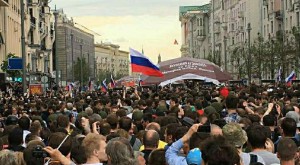 The revolutionary epochs in Russia were characterized not only by socio-political changes, but, first of all, by ideological challenges, by changing value paradigms, by transformations of moral consciousness and social morality. Each historical stage of revolutionary changes formed its moral dominants – values that are built into principles and determine the “ethics of convictions” of entire generations.
The revolutionary epochs in Russia were characterized not only by socio-political changes, but, first of all, by ideological challenges, by changing value paradigms, by transformations of moral consciousness and social morality. Each historical stage of revolutionary changes formed its moral dominants – values that are built into principles and determine the “ethics of convictions” of entire generations.
For example, for the Decembrist generation, the public good, moral duty and responsibility were the imperative and valuable components of moral consciousness, they were fixed in narratives (memoirs, evidences of contemporaries, epistolary and literary heritage) and actualized in historical memory. Moral concepts were filled with social content, ethical reflection of historical events went beyond the limits of speculative constructions to the practice of social action.
When understanding the first revolutionary stage in the history of Russia, a number of theoretical problems arise, such as the problem of the proper and existing in morals, the ideal and reality, the unity of moral consciousness (basic values, norms, ideals, principles) and moral behavior. In the second half of the XIX century, ethical thought in Russia turns to social, applied problems, because ethics requires not cabinet theories, but answers to social, political demands of society, participation in moral historical choice.
Theoretical discussions went beyond the university audiences, academic departments to social life, to pages of journals, memoirs and memoirs, artistic and journalistic texts, political discussions, and became one of the factors shaping both the social moral consciousness and individual moral consciousness, personal moral reflection.
Ethical thought was turned into a space of social, legal, political analysis. During this period, there are discussions about the relationship between law and morality, individual morality and the institutional nature of morality, the ideals of individual perfection of the individual and social ideals.
By the end of the century, tense moral reflection in Russian society leads to the formation of a special type of personality – the Russian intellectual, the formation of moral self-consciousness of society.
The high level of theoretical ethical reflection that emerged in the intellectual environment of this period allowed to build and substantiate a system of moral ideas that form moral convictions and constitute a special ideological level of the moral consciousness of the individual and society.
At the ideological level of moral consciousness, a socially significant value series of moral concepts structuring the moral convictions of the individual is built. In this historical period, the development of ethics was determined not so much by the logic of the development of science itself as by socio-political demands, ideological vectors, which led to the formation of a subject area of social ethics, ethics of law, ethics of upbringing.
It can be concluded that ethics in Russia was presented not only as a definite system of theoretical constructions and metaphysical concepts, but above all as an “ethic of beliefs” – a system of views that determines the way of thinking and way of life that has shaped the moral personality type, the main characteristic feature of which is, first of all, tense moral reflection, and a special social layer – the intelligentsia.
Authors: Ovchinnikova Elena, Chumakova Tatiana
